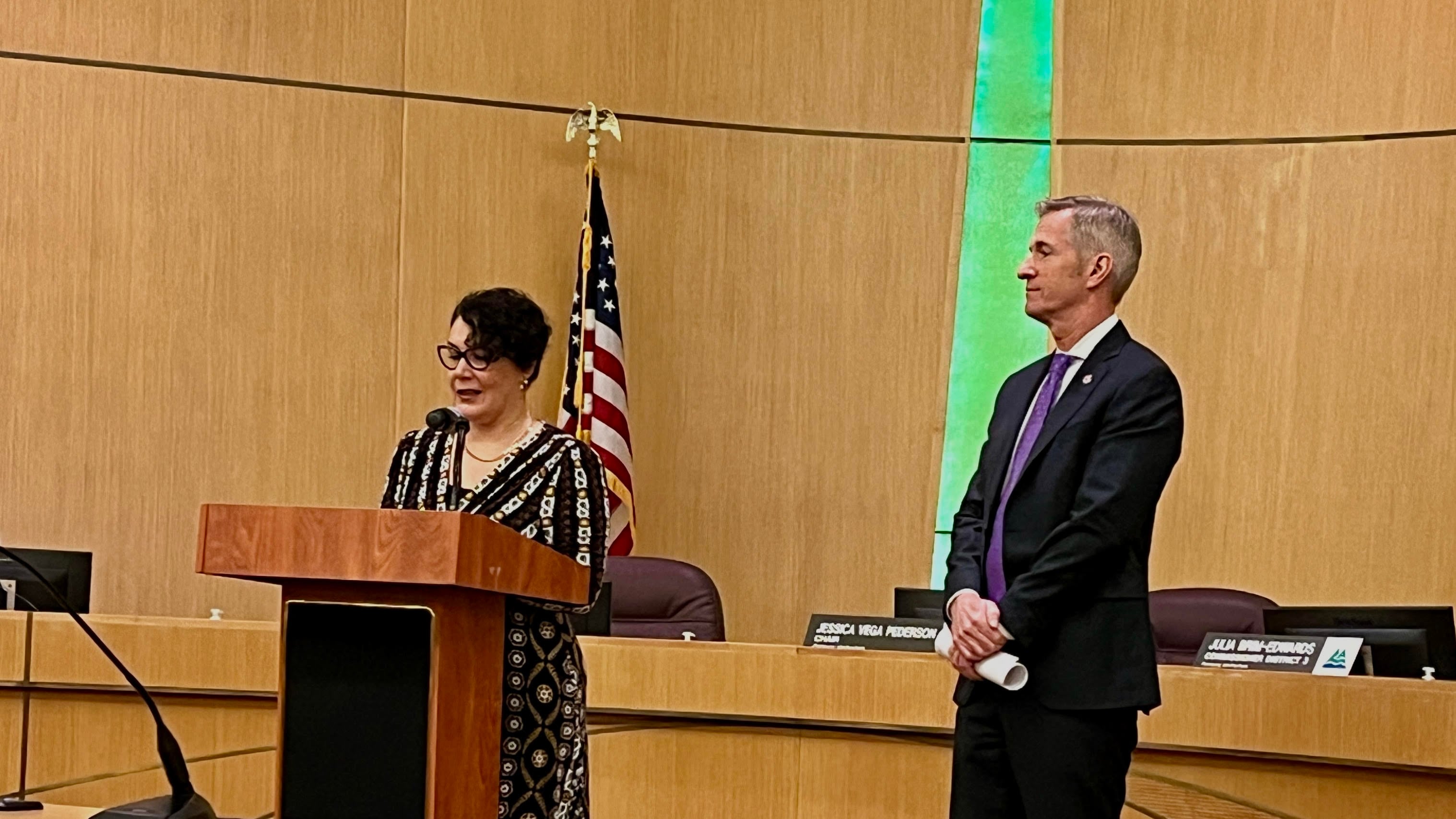The top two elected leaders in the Portland metro area laid out yet another series of ambitious homelessness goals Monday morning, promising this time to house or shelter about half of the estimated 5,398 people living unsheltered on the streets by the end of 2025.
The sweeping list of goals laid out by Multnomah County Chair Jessica Vega Pederson and Portland Mayor Ted Wheeler—the topline goal being to house 2,700 currently homeless people in just shy of two years—comes after a yearslong series of failures by the county to spend its homelessness tax dollars on time and in the manner promised. A more recent failure is Vega Pederson’s “Housing Multnomah Now” program, which aimed to house 300 people by June 2023, but has, as The Oregonian reported, housed only 37 as of February.
Even so, the two leaders now promise much bigger achievements. Among them: house or shelter half of the unsheltered population, open a sobering center, create an additional 1,000 shelter beds, add treatment and behavioral health beds to the system, keep at least three-quarters of people placed in permanent housing there for longer than 24 months, end hospital discharges to the street, and—once again—bolster the county’s tracking and data system and increase collaboration among the city, county and state to achieve all this.
Most of the goals are slated for completion by December 2025, when Vega Pederson completes her third year as county chair. If she chooses to run for a second term in 2026, she will likely be measured against the goals she laid out Monday as she launches her reelection campaign. Wheeler is not running for a third term as mayor.
As WW has reported, Vega Pederson’s administration has struggled for the past two years to spend dollars in a timely fashion from the supportive housing services tax passed by Metro voters in 2020. The tax on high-income earners and corporations has brought in higher-than-expected revenues and has left the county swimming in money it can’t figure out how to spend. Reports show the county spent only 22% of its budget from that tax in the first six months of the current fiscal year.
Because Clackamas, Washington and Multnomah counties are failing to spend the tax dollars on time, Metro, which administers the tax, is now chewing over a plan to claw back some of the unused funds for affordable housing.
“Homelessness is one of the most pressing and complex issues Multnomah County faces,” Vega Pederson said in a statement this morning that accompanied the 47-page plan. “Today, we unveil a comprehensive and ambitious plan to address this crisis. Our specific and measurable goals are in direct service to people who deserve to be seen and connected to services that meet their specific needs.”

